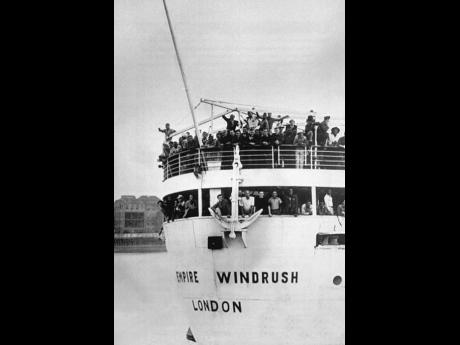Lord Ahmad | Caribbean expats mean much to Britain
The 70th anniversary of the arrival of the Empire Windrush at Tilbury Docks in the United Kingdom gives us a fitting opportunity to celebrate UK-Caribbean relations and the invaluable contribution the Windrush Generation has made to British society ever since. The Caribbean diaspora in the UK symbolises the indelible bonds between our two sets of islands.
There is no better example of that contribution than the dedication of people from the Caribbean, and Jamaica, in particular, to the UK's National Health Service, itself marking 70 years on July 5. Without them, it would not be the institution we hold dear today, providing incredible healthcare and envied across the world.
Those from the Windrush Generation worked in our essential industries, including public transport, the post office, construction, and the armed forces, and are central figures in many communities. Today, their families play many diverse roles. Some are civil servants, healthcare workers, business owners, professionals, and leading lights in music, sport, and film. They are key to Britain's success.
I doubt that there is a corner of Britain that has not been inspired and enriched by the Windrush Generation and their descendants. From their efforts in reviving our great cities after the war to Britain's first black MPs entering Parliament and campaigning for all Britons to have an equal stake in society, the pioneering Caribbean anti-racism and social-justice campaigners pushed for legislative and social change. And let's not forget the power of our sporting and cultural heroes, who, through their skill, talent, and discipline, used their gifts to make an indelible mark to help create a proud, united, and multicultural Britain. Brand Jamaica is thriving in Britain and making its mark on people's lifestyles.
The British Caribbean community has been integral to creating a Britain that is fairer, more tolerant, and more at ease with itself in a changing world. An important part of Britain's contemporary diversity can be credited to those first men, women, and children who made the one-month journey from the Caribbean and disembarked at Tilbury Docks on June 22, 1948.
Life held many hardships for those who arrived, and the streets were certainly not 'paved with gold'. Many were even returning to the UK, having already served here during the war. The fortitude shown as they overcame daunting challenges and built successful lives and businesses for themselves and their families has come to represent a strength in spirit that we continue to see today. It is an experience and spirit that I personally relate to as it is reminiscent of the challenges my parents themselves faced, as well as the opportunities offered by their adopted nation.
We all know that in recent months, the Windrush Generation has faced further challenges, with questions raised over their immigration status.
It was never the intention that they should be caught up in the measures put in place to tackle illegal migration. The UK government has taken focused action to assist anyone who may be affected to make sure that they have the documentation that they need and are able to formalise their British citizenship should they so choose.
As Prime Minister Theresa May said to Caribbean representatives visiting for April's Commonwealth meeting, we are deeply sorry for the anxiety that was caused, and I cannot emphasise enough how much we value the enduring contributions of those who came to the UK and made Britain their home. We are determined to put this right.
The majority of the Windrush Generation came from Jamaica. The UK continues to enjoy strong relationships with Commonwealth Caribbean countries reinforced by the personal ties of the diaspora, particularly the 800,000 people in the UK with Jamaican roots. And more than 200,000 British tourists come to enjoy Jamaica's beaches and mountains every year.
The UK is the single largest bilateral aid donor to the Caribbean. Our investments are helping to improve the lives of people across the Caribbean in a number of ways. Through the UK-Caribbean Infrastructure Fund, the UK is investing over £300 million in critical economic infrastructure across the Caribbean; increasing resilience to natural disasters and climate change; promoting growth; and creating jobs.
Jamaica is the largest beneficiary in the region, receiving a total of more than J$9 billion (£53.2 million): the largest project within this (J$6 billion - £35.5 million) will fund irrigation projects in areas including Essex Valley, St Elizabeth; St Catherine; and Clarendon.
Following last year's devastating hurricanes, the UK contributed more than £196 million to help the region's recovery. This includes £19 million, announced at the Commonwealth Heads of Government Meeting in April, to strengthen disaster preparedness and resilience across the Caribbean. We are also supporting the Caribbean's future development and prosperity with ongoing collaboration on regional priorities such as security and fighting crime.
As we take a moment to consider this momentous occasion, it is my honour, as minister of state for the Caribbean and the Commonwealth, to join in celebrating the achievements of the Windrush Generation and the role they play in UK-Caribbean relations and making our country the incredible place it is.
- Lord Tariq Ahmad of Wimbledon is minister of state at the Foreign and Commonwealth Office with responsibility for the Commonwealth and the United Nations. Email feedback to columns@gleanerjm.com.

